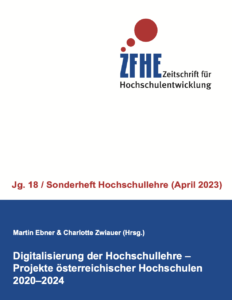Our research about „Exploring the Utilization of Online Resources and Experiences in Language Learning: A Study of Indonesian Students Learning German as a Foreign Language“ is now online available.
Abstract: This study examines the frequency of online resource utilization among German language students at Universitas Negeri Malang (Indonesia) who are at the B1 level. The aim of the research is to investigate the usage of websites and applications during German language studies. Standardized questions were administered to a sample of 54 students to gather information regarding their engagement with online resources throughout their coursework. Additionally, feedback on selected online resources was collected and assessed. The findings reveal that Indonesian students demonstrate a preference for using videos featuring interviews with native German speakers, alongside the inclusion of supportive subtitles to enhance comprehension. However, a significant challenge arises due to the lack of materials specifically tailored for Indonesian learners, which also clearly indicate the intended language proficiency level.
[preprint @ ResearchGate]
[publication @ publisher’s homepage]
Reference: Ebner, M., Schön, S., Hidayat, E. & Ardiyani, D.K. (2023). Exploring the Utilization of Online Resources and Experiences in Language Learning: A Study of Indonesian Students Learning German as a Foreign Language. In T. Bastiaens (Ed.), Proceedings of EdMedia + Innovate Learning (pp. 1085-1090). Vienna, Austria: Association for the Advancement of Computing in Education (AACE). Retrieved July 17, 2023 from https://www.learntechlib.org/primary/p/222623/.

